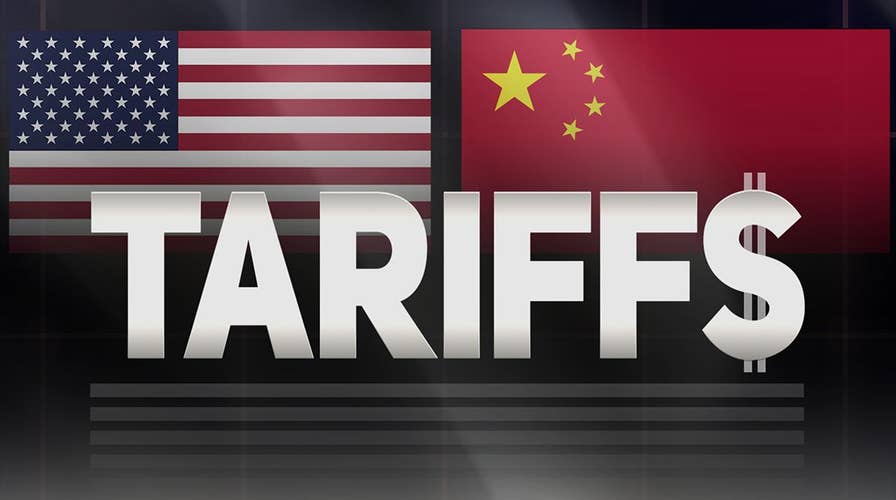US begins process for tariffs on $200B in Chinese products
'Special Report' panel reacts to the strategy behind the Trump administration's new charges on Chinese products.
The Trump administration announced Tuesday that it has started the process of implementing fresh tariffs on $200 billion worth of imported Chinese goods.
The move marked the latest escalation of the ongoing trade war between Washington and Beijing. On Friday, the U.S. slapped 25 percent taxes on $34 billion in Chinese imports, most of them industrial goods that the Trump administration says receive subsidies or other unfair support from Beijing. China quickly responded by imposing tariffs on $34 billion in U.S. products.
In a statement, U.S. Trade Representative Robert Lighthizer said that the new 10-percent tariffs were in response to what he called China's "retaliation and failure to change its practices."
"This is an appropriate response under the authority of Section 301 to obtain the elimination of China’s harmful industrial policies," Lighthizer added.
More than 6,031 product lines are affected by the new proposed tariffs, including seafood, fruits and vegetables, grains, tobacco, car rearview mirrors and burglar alarms.
Lighthizer's office will hear public comments on the plan and will reach a decision after Aug. 31, according to a senior administration official who briefed reporters on condition of anonymity.
Senate Finance Committee Chairman Orrin Hatch, R-Utah, responded to Lighthizer's announcement with dismay.
"Although I have supported the administration’s targeted efforts to combat China’s technology transfer regime, tonight’s announcement appears reckless and is not a targeted approach," Hatch said in a statement. "We cannot turn a blind eye to China’s mercantilist trade practices, but this action falls short of a strategy that will give the administration negotiating leverage with China while maintaining the long-term health and prosperity of the American economy."
All told, Trump has threatened eventually to slap tariffs on up to $550 billion in Chinese imports — more than China actually exported to the United States last year — if Beijing won't relent to U.S. pressure and continues to retaliate.
The White House has complained that China has used predatory practices in a relentless push to grant Chinese companies an unfair advantage in the industries of the future, including robotics, electric cars and biopharmaceuticals. These tactics include the outright theft of trade secrets, government subsidies to homegrown tech firms and demands that U.S. and other foreign companies hand over technology if they want access to China's vast market.
A senior administration official told Fox News that China has been "non-responsive" to U.S. actions and has insisted that Beijing does not see any way America has been hurt by Chinese policies. The official added that China has warned the U.S. that future actions would be met with "economic attacks" on American markets.
Fox Business Network's Andrew Lawrence, Fox News' Jason Donner and The Associated Press contributed to this report.











































